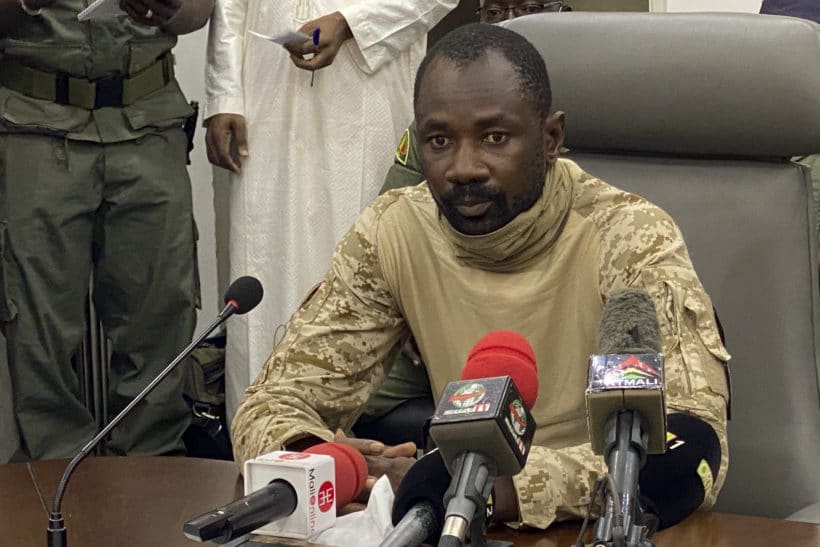
He said he was committed to implementing “the actions necessary for the success of the transition, notably the organisation of credible, fair and transparent elections that are held as scheduled.”
BAMAKO, June 7 (Reuters) – Assimi Goita, the Malian colonel who has overthrown two presidents in the past nine months, said he would oversee a transition toward democratic elections as he was sworn in as interim president on Monday.
Goita, a 38-year-old special forces commander, had already been declared president by the constitutional court last month after ousting Bah Ndaw, but was formally sworn in on Monday during a ceremony in the capital Bamako.
He is under pressure from regional and international powers to ensure elections go ahead next February as scheduled, who worry the political upheaval could jeopardise gains made against Islamist insurgents based in the country’s desert north.
Goita’s advisers have suggested that the initial timetable for elections could change.
“The situation offers us the opportunity to put the process of transition back in the direction desired by the people,” said Goita, who had traded his camouflage fatigues for a dark gray officer’s uniform and a yellow sash.
Goita was one of several colonels who overthrew President Ibrahim Boubacar Keita last August.
A transitional government that would oversee an 18-month transition to democratic elections was then put in place with Ndaw as president and Goita as his vice.
Goita last month ordered the arrests of both Ndaw and the prime minister for not informing him about the details of a cabinet reshuffle, which he alleged violated the transitional charter. Both later resigned while in custody.
West African regional bloc ECOWAS and the African Union last week suspended Mali from their organisations, although they declined to impose further sanctions. The World Bank said on Friday it had temporarily paused payments to the country.
Former colonial power France, which maintains more than 5,000 troops in Mali to combat Islamist militants, said it would temporarily suspend joint military operations with Malian troops but would continue to operate in the country separately.
Choguel Maiga, an opposition leader and former prime minister, is expected to be appointed prime minister in the coming days, which could be enough to satisfy some of the calls for a civilian-led government.
(Reporting by Tiemoko Diallo; Writing by Cooper Inveen and Aaron Ross; Editing by Edmund Blair and Angus MacSwan)